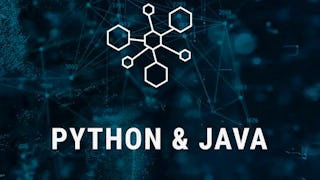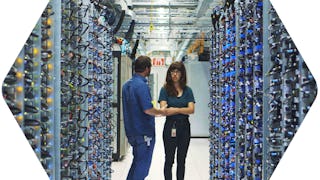Filter by
SubjectRequired
LanguageRequired
The language used throughout the course, in both instruction and assessments.
Learning ProductRequired
LevelRequired
DurationRequired
SkillsRequired
SubtitlesRequired
EducatorRequired
Explore the High Performance Computing Course Catalog
 Status: Free Trial
Status: Free TrialKennesaw State University
Skills you'll gain: Statistical Process Controls, Statistical Hypothesis Testing, Process Capability, Team Management, Quality Improvement, Root Cause Analysis, Six Sigma Methodology, Lean Six Sigma, Lean Methodologies, Exploratory Data Analysis, Process Improvement, Quality Control, Probability & Statistics, Operational Excellence, Statistical Analysis, Process Analysis, Process Mapping, Correlation Analysis, Business Process Management, Data Analysis
 Status: Free Trial
Status: Free TrialDeepLearning.AI
Skills you'll gain: Linear Algebra, NumPy, Dimensionality Reduction, Machine Learning Methods, Jupyter, Data Manipulation, Data Science, Applied Mathematics, Python Programming, Image Analysis, Artificial Intelligence

Technical University of Denmark (DTU)
Skills you'll gain: Mechanical Engineering, Engineering Calculations, Engineering, High Voltage, Systems Engineering, Energy and Utilities, Time Series Analysis and Forecasting, Electrical Power, Structural Analysis, Financial Analysis, Environmental Monitoring, Failure Analysis, Engineering Design Process, Predictive Modeling, Geospatial Information and Technology
 Status: Free Trial
Status: Free TrialUniversity of Pennsylvania
Skills you'll gain: Matplotlib, Object Oriented Design, Java, Object Oriented Programming (OOP), Data Analysis, Unit Testing, Pandas (Python Package), Eclipse (Software), Data Structures, Data Cleansing, Debugging, Pivot Tables And Charts, Data Visualization Software, Software Testing, Integrated Development Environments, Program Development, Programming Principles, Python Programming, Computer Programming, Computational Thinking
 Status: Free Trial
Status: Free TrialSkills you'll gain: Cloud Infrastructure, Cloud Storage, Infrastructure As A Service (IaaS), Google Cloud Platform, Cloud Computing Architecture, Cloud Computing, Network Infrastructure, Virtual Machines, Cloud Management, Virtual Private Networks (VPN), Command-Line Interface, Firewall
 Status: Free Trial
Status: Free TrialIndian School of Business
Skills you'll gain: Financial Statements, Peer Review, Financial Statement Analysis, Financial Trading, Balance Sheet, Portfolio Management, Data Collection, Market Liquidity, Market Data, Investment Management, Financial Analysis, Performance Analysis, Financial Market, Market Dynamics, Project Design, Market Analysis, Business Planning, Securities Trading, Performance Measurement, Technical Analysis
 Status: Free Trial
Status: Free TrialNorthwestern University
Skills you'll gain: Blogs, Social Media Marketing, Integrated Marketing Communications, Peer Review, Key Performance Indicators (KPIs), Social Media Strategy, Business Marketing, Real Time Data, Marketing Effectiveness, Content Marketing, Strategic Marketing, Marketing Strategies, Marketing, Target Audience, Social Media, Social Media Campaigns, Budgeting, Digital Transformation, Big Data, Marketing Analytics
 Status: Free Trial
Status: Free TrialSkills you'll gain: Customer Retention, Customer Relationship Management, Customer Service, E-Commerce, Data-Driven Decision-Making, Marketing Analytics, AI Personalization, Digital Marketing, Customer Insights, Interviewing Skills, Presentations, Portfolio Management, Recruitment

Amazon Web Services
Skills you'll gain: Amazon Web Services, Amazon CloudWatch, Public Cloud, AWS Identity and Access Management (IAM), Cloud Services, Cloud Computing, Cloud Platforms, Cloud Infrastructure, Amazon Elastic Compute Cloud, Cloud Management, Cloud Security, Amazon S3, Cloud Computing Architecture, Continuous Monitoring, Scalability
 Status: Free
Status: FreeAmazon Web Services
Skills you'll gain: Amazon Elastic Compute Cloud, Amazon Web Services, Performance Tuning, Cloud Infrastructure, Computing Platforms, Infrastructure As A Service (IaaS), Cloud Services, Public Cloud, Capacity Management
 Status: Free Trial
Status: Free TrialUniversity of Colorado System
Skills you'll gain: Vital Signs, Patient Evaluation, Pharmacology, Trauma Care, Emergency and Intensive Care, Cardiology, Medical Emergency, Cardiopulmonary Resuscitation (CPR), Medication Administration, Automated External Defibrillator, Emergency Medical Services, Life Support, Medical History Documentation, First Aid, Child Health, Respiratory Care, Neurology, Emergency Medicine, Neonatal Intensive Care Unit, Patient Education And Counseling
 Status: Free Trial
Status: Free TrialSkills you'll gain: User Experience Design, UI/UX Research, User Centered Design, Design Thinking, Professional Development, Usability, Interviewing Skills, Responsive Web Design, Web Applications, Mobile Development, Mockups, Prototyping, Generative AI
High Performance Computing learners also search
In summary, here are 10 of our most popular high performance computing courses
- Six Sigma Green Belt: Kennesaw State University
- Linear Algebra for Machine Learning and Data Science: DeepLearning.AI
- Wind Energy: Technical University of Denmark (DTU)
- Introduction to Programming with Python and Java: University of Pennsylvania
- Essential Google Cloud Infrastructure: Foundation: Google Cloud
- Trading Strategies in Emerging Markets: Indian School of Business
- Social Media Marketing: Northwestern University
- Satisfaction Guaranteed: Develop Customer Loyalty Online: Google
- AWS Cloud Practitioner Essentials: Amazon Web Services
- Amazon EC2 Basics: Amazon Web Services










